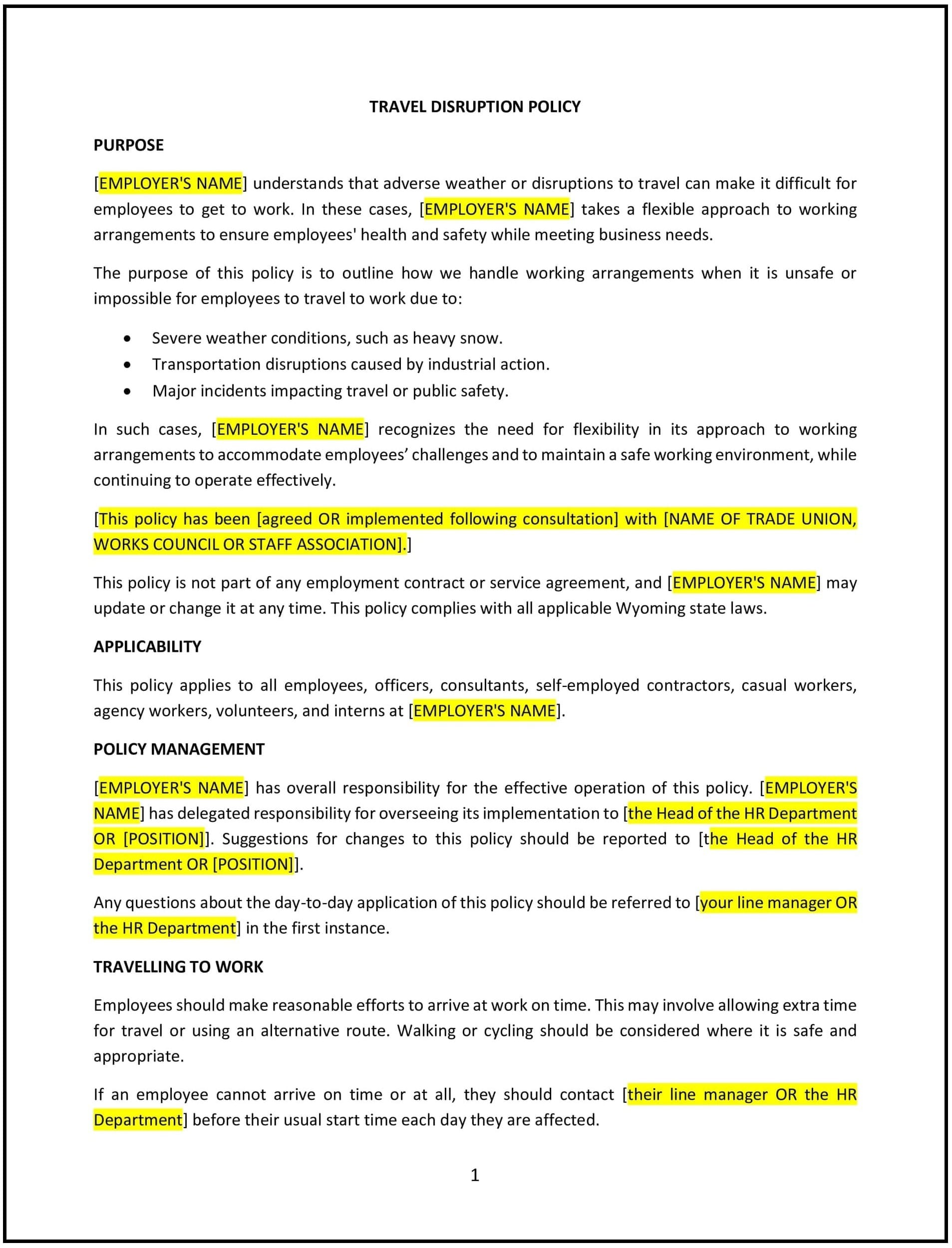Got contracts to review? While you're here for policies, let Cobrief make contract review effortless—start your free review now.

Customize this template for free
Travel disruption policy (Wyoming)
In Wyoming, a travel disruption policy provides guidelines for handling unexpected disruptions during business travel, such as flight cancellations, severe weather, or other unforeseen events. This policy ensures that employees know how to respond to travel disruptions while maintaining business continuity and minimizing costs.
This policy outlines procedures for managing travel disruptions, including communication protocols, expense coverage, and alternative arrangements.
How to use this travel disruption policy (Wyoming)
- Define travel disruptions: Clearly specify what constitutes a travel disruption, such as flight cancellations, severe weather, or other unforeseen events impacting travel plans.
- Establish communication protocols: Provide guidelines for employees to notify their supervisors or travel coordinators immediately when disruptions occur.
- Outline expense coverage: Detail which additional expenses, such as hotel stays, meal allowances, or transportation changes, are reimbursable in case of disruptions.
- Provide alternative travel arrangements: Include procedures for rebooking travel, contacting approved vendors, or using company-authorized travel agencies.
- Support compliance: Align the policy with Wyoming labor laws and company expense guidelines to ensure legal and financial adherence.
Benefits of using a travel disruption policy (Wyoming)
A travel disruption policy provides several advantages for Wyoming businesses:
- Enhances preparedness: Ensures employees are equipped to handle disruptions efficiently and effectively.
- Supports compliance: Aligns with company expense policies and legal requirements, minimizing disputes.
- Promotes safety: Prioritizes employee well-being during unexpected travel disruptions.
- Improves communication: Provides clear protocols for addressing disruptions and ensuring timely responses.
- Adapts to local needs: Reflects Wyoming’s unique travel challenges, such as rural locations and variable weather conditions.
Tips for using a travel disruption policy (Wyoming)
- Communicate effectively: Share the policy with employees before business travel to ensure they understand procedures.
- Leverage technology: Use travel management tools or apps to assist employees in managing disruptions and rebooking arrangements.
- Provide emergency contacts: Include a list of contacts for travel coordinators, approved vendors, or company representatives.
- Monitor expenses: Regularly review submitted expenses related to travel disruptions to ensure policy adherence.
- Review periodically: Update the policy to reflect changes in travel guidelines, costs, or company practices.